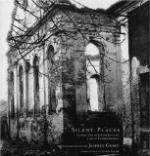Therefore an incident of the early afternoon was more than welcome.
All the morning they had toiled against the current, sometimes poling, sometimes “tracking” by means of a sixty-foot cod-line. Dick looped this across his chest and pulled like a horse on the tow-path, while Sam Bolton sat in the stern with the steering-paddle. The banks were sometimes precipitous, sometimes stony, sometimes grown to the water’s edge with thick vegetation. Dick had often to wade, often to climb and scramble, sometimes even to leap from one foothold to another. Only rarely did he enjoy level footing and the opportunity for a straight pull. Suddenly in a shallow pool, near the river’s edge, and bordered with waist-high grass, he came upon a flock of black ducks. They were full grown, but as yet unable to fly. Dick dropped his tow-line and ran forward with a shout. At once the ducks became confused, scattering in all directions, squawking madly, spattering the water. The mother flew. The brood, instead of making for the open river, where it would have been safe, scuttled into the tall grasses.
Here was the chance for fresh meat without the expenditure of a shot. Sam Bolton promptly disembarked. To us it would have seemed a simple matter. But the black duck is an expert at concealment, even in the open. He can do wonders at it when assisted by the shadows of long grass. And when too closely approached he can glide away to right and left like a snake, leaving no rustle to betray his passage. Five minutes passed before the first was discovered. Then it was only because Dick’s keen eye had detected a faintly stirring grass-blade ten feet away, and because Dick’s quick muscles had brought him like a tiger to the spot. He held up his victim by the neck.
“Good enough,” growled Sam.
And although they had seen nine ducks go into the grass plot, which was not more than fifty feet across, they succeeded in finding but three. However, they were satisfied.
In spite of the deliberation of their journeying, the Indians did not overtake them until nearly dark. It was just above the junction of the Abitibi. The river was without current, the atmosphere without the suspicion of a breeze. Down to the very water’s edge grew the forest, so velvet-dark that one could not have guessed where the shadow left off and the reflection began. Not a ripple disturbed the peace of the water, nor a harsh sound the twilight peace of the air. Sam and Dick had paddled for some time close to one bank, and now had paused to enjoy their pipes and the cool of the evening. Suddenly against the reflected sky at the lower bend a canoe loomed into sight, and crept smoothly and noiselessly under the forest shadow of the opposite bank. Another followed, then another, and another and still another in regular interval. Not a sound could be heard. In the distance their occupants gave the illusion of cowled figures,—the Indian




